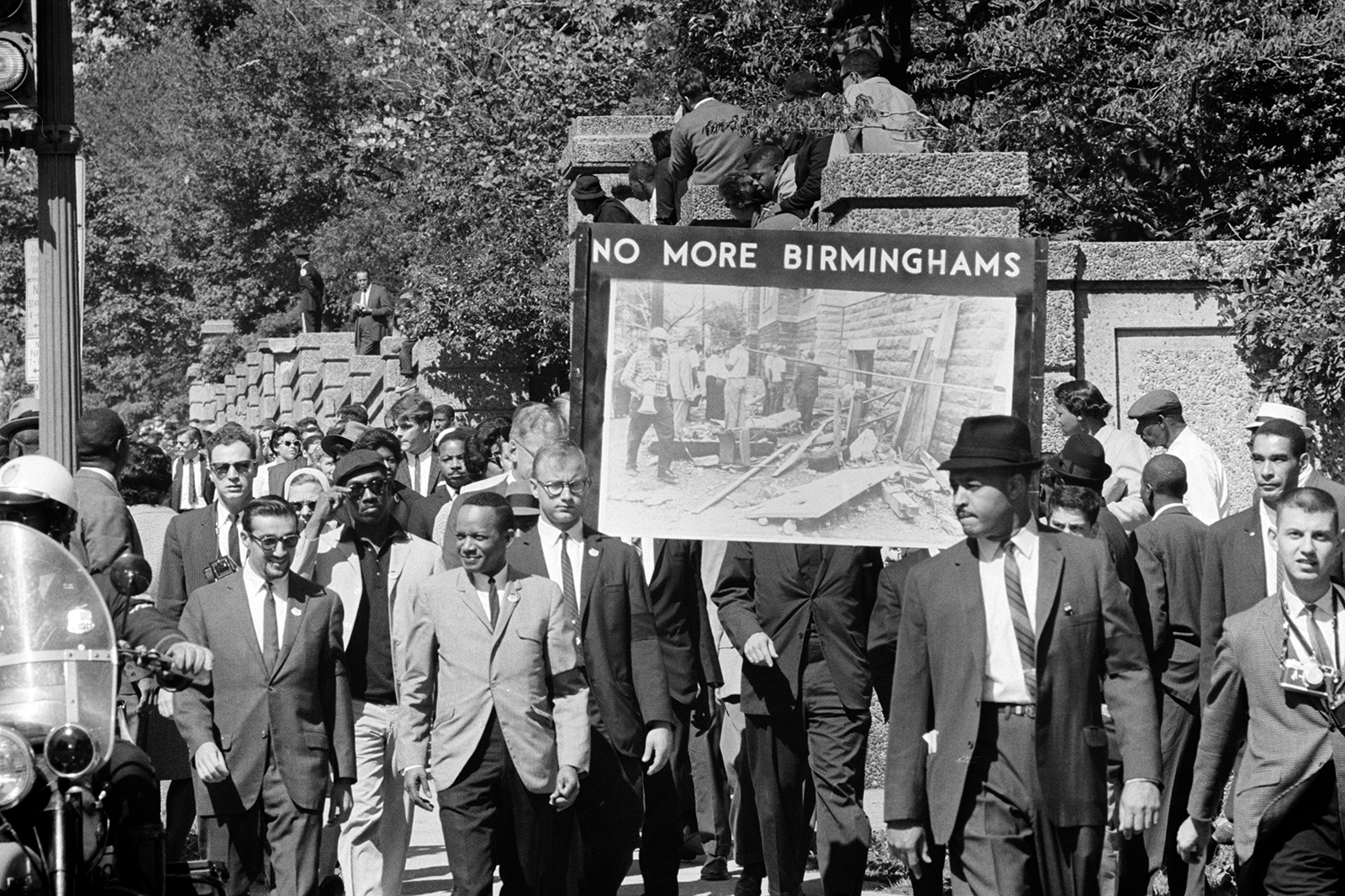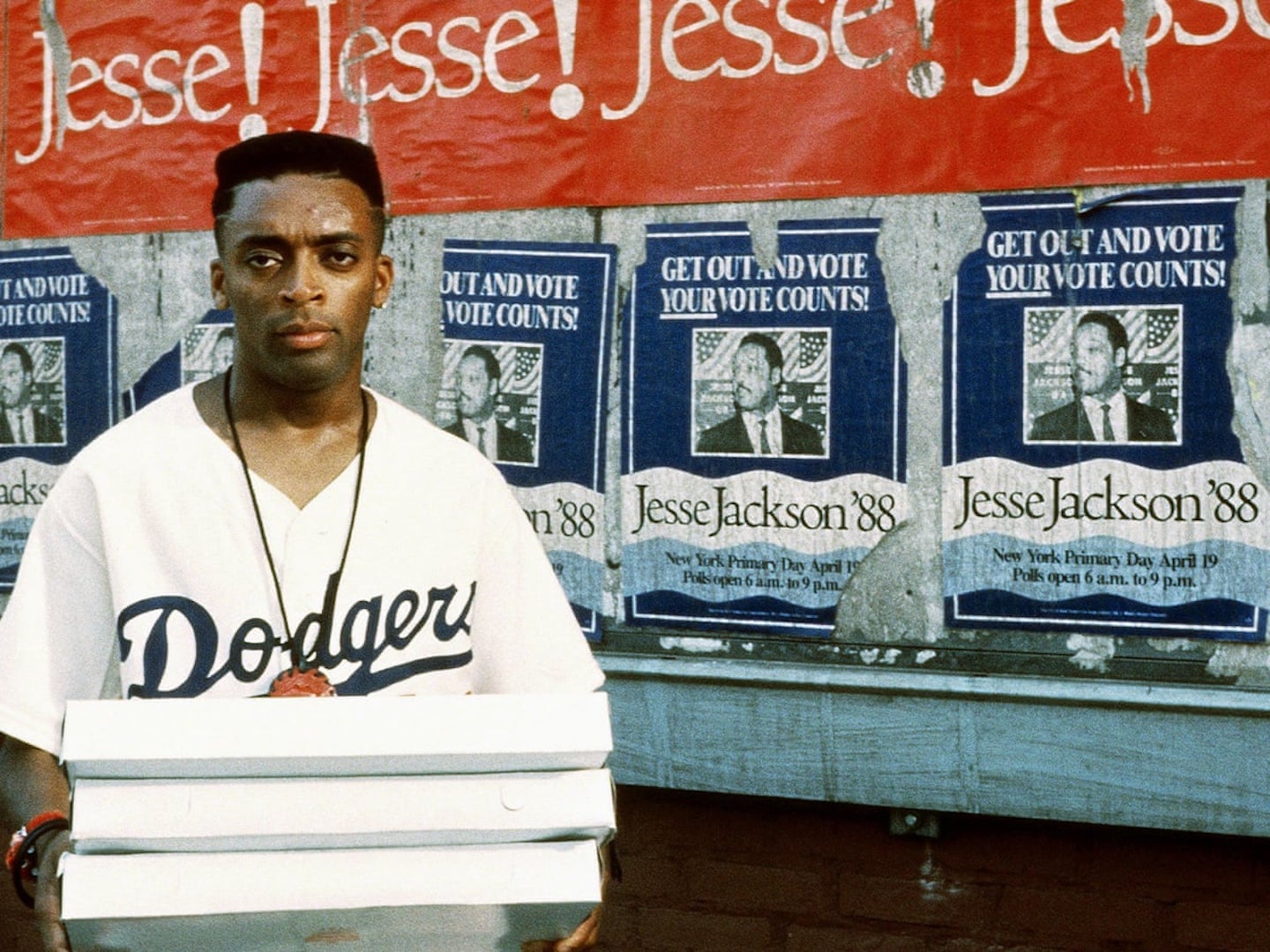Spike Lee is a legend: a man who imbues every picture that he makes with a message that retains relevance for years after it’s first released. He burst onto the scene in 1986 with his debut feature She’s Gotta Have It, a game changing rom-com that proudly flaunted the racist stereotypes of Hollywood by subverting them: his Black leads, living in Brooklyn, were framed not as criminals (a stereotype white directors veered towards), but as intelligent, upstanding members of society that thrived. It was one of the key building blocks for the American filmmakers of the 1980s — Gus Van Sant and Jim Jarmusch were some of his peers in that regard — and it catalysed a career trajectory that allowed Spike to dip into and out of different genres and tones, all the while maintaining a staunch message about the power of Black creativity and leadership. His latest Netflix feature Da 5 Bloods is no different: a piercing, funny, glorious story of Black brotherhood that follows a group of Vietnam war veterans as they return to enemy soil in search of the body of their leader, and a stash of gold they left behind.
Spike Lee is also one of the few directors to pivot from super underground cinema (e.g. She’s Gotta Have It) to the haughty commercial realms of American cinema (such as 2006 political thriller Inside Man) and retain his integrity. What he does he does well, but with so many of his catalogue on offer — some 24 narrative features, with more documentaries, TV series and production credits to boot — it can be confusing where best to dive in.
She’s Gotta Have It should provide you with a fast and effective crash course intro into Spike’s tone, though it’s not necessarily where you should start. Here’s a solid rundown of five of his films that will give you a comprehensive look into his directorial and screenwriting style.
The entry point is… BlacKkKlansman
Though it’s arguably not seen as a classic Spike Lee yet (it was only released back in 2018), this Oscar-winning film about a Black detective successfully infiltrating an arm of the Ku Klux Klan has just the right balance of sardonicism, power, and fire-bellied, vital politics. Set in the 1970s, it stars John David Washington in the lead role and Adam Driver as his white accomplice as they navigate the murky waters of America’s racist Midwest, catching out gormless far-right figures as they go. The film won the Grand Prix at Cannes that year, and later took Spike to Oscar glory, where it was awarded for its razor-sharp screenplay. For those who are slightly phobic of films made before the turn of the century, here you have a great, glossy entry point to this legend’s filmography.
Necessary viewing? Do The Right Thing
Widely considered not only one of Spike Lee’s best films, but one of the greatest American films ever made, Do The Right Thing hit cinemas just three years after the filmmaker’s breakout, She’s Gotta Have It. Again, set in Brooklyn just as it fell into the hands of white gentrifiers, it centres around a pizzeria, its Italian American owner Sal, and the predominantly Black customers he’s served for much of his, and their life. Mookie, played by Spike, is their main delivery guy. He’s friendly with one of Sal’s sons but loathed by the other, a proud racist. A conversation about a ‘Wall of Fame’ in the pizzeria, populated almost entirely by white faces, conjures up a debate that boils over. About the positive effects of affirmative action and Black dominance in neighbourhoods they’ve lived in their whole lives, Do The Right Thing is rare and timeless; one of Spike Lee’s many necessary films.
The one everyone’s seen is… Malcolm X
Second only to Inside Man as Spike Lee’s most popular film at the box office, this 1992 biopic about the life and death of Malcolm X perfectly toes the line between artistically powerful and accessible. Made in the wake of Do The Right Thing’s success, the film is a perceptive look at the vital, if brief presence of the legendary civil rights activist in the world, taking us through his childhood memories in flashback while covering everything from his marriage, religion and perception of white people in the present. It stars Denzel Washington in the titular role, for which he was nominated for an Oscar. Malcolm’s own widow, Dr Betty Shabazz, was a creative consultant on the project. What’s more, when it came to the film’s promotional run, Spike set out some ground rules for publications who wanted to speak to him about the film: only Black journalists could do so. In an industry that, even now, still favours the predominantly white middle classes, the move was revolutionary; there’s even evidence of some film titles, like the movie magazine Premiere, hiring Black editors and writers off the back of Spike’s request.

The underappreciated gem is… 4 Little Girls
In 1997, Spike Lee looked back, and dusted off his non-fiction lens to direct 4 Little Girls, a powerful, unembellished documentary for HBO about Addie Mae Collins, Cynthia Wesley, Carole Robertson and Carol Denise McNair — four girls between the ages of 11 and 14 who were murdered in a planned white supremacist attack. For years, justice wasn’t served: the girls’ killers weren’t identified or sentenced until, in some cases, nearly four decades later. But instead of framing these girls solely as victims, Spike branched outwards: interviewing family members alongside civil rights activists, he paints a full-bodied portrait of four young women whose lives were taken from them far too soon, and in the name of unbridled evil. In 2017, the film was chosen to be preserved by the National Film Registry for its cultural and historic significance. Released shortly in cinemas before hitting HBO, it’s sorely underseen but a brilliant example of Spike’s filmmaking power.
The deep cut is… When the Levee Broke
Another prime example of Spike’s expertise as a documentary filmmaker, When The Levees Broke is his four-hour opus. The film chronicles life for those living in the aftermath of Hurricane Katrina, let down by the ailing structures of the levees — improperly maintained by the United States Army Corps of Engineers — designed to keep flood waters out. Spike’s film argues that the disaster caused by Katrina was entirely preventable, and uses the voices of those who still live there, alongside political figures and famous faces (like Kanye West) to support this. A prime example, like 4 Little Girls, of how Spike’s voice is just as strong and important outside of narrative cinema, this won Spike three Emmys and a Peabody Award, when it reached its audiences in two parts in 2006.
